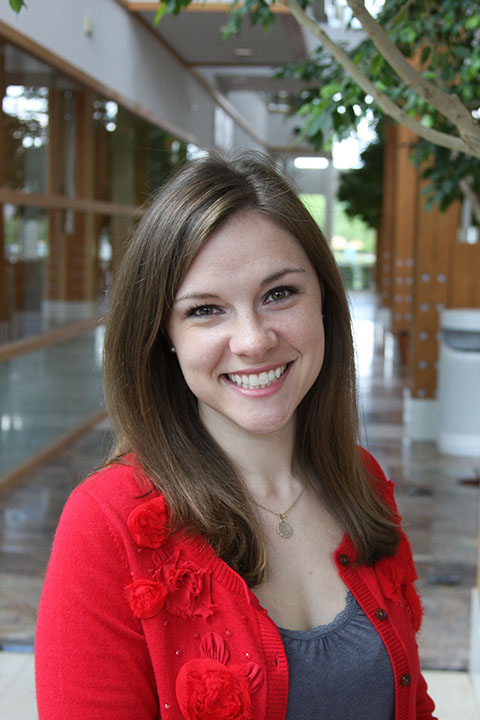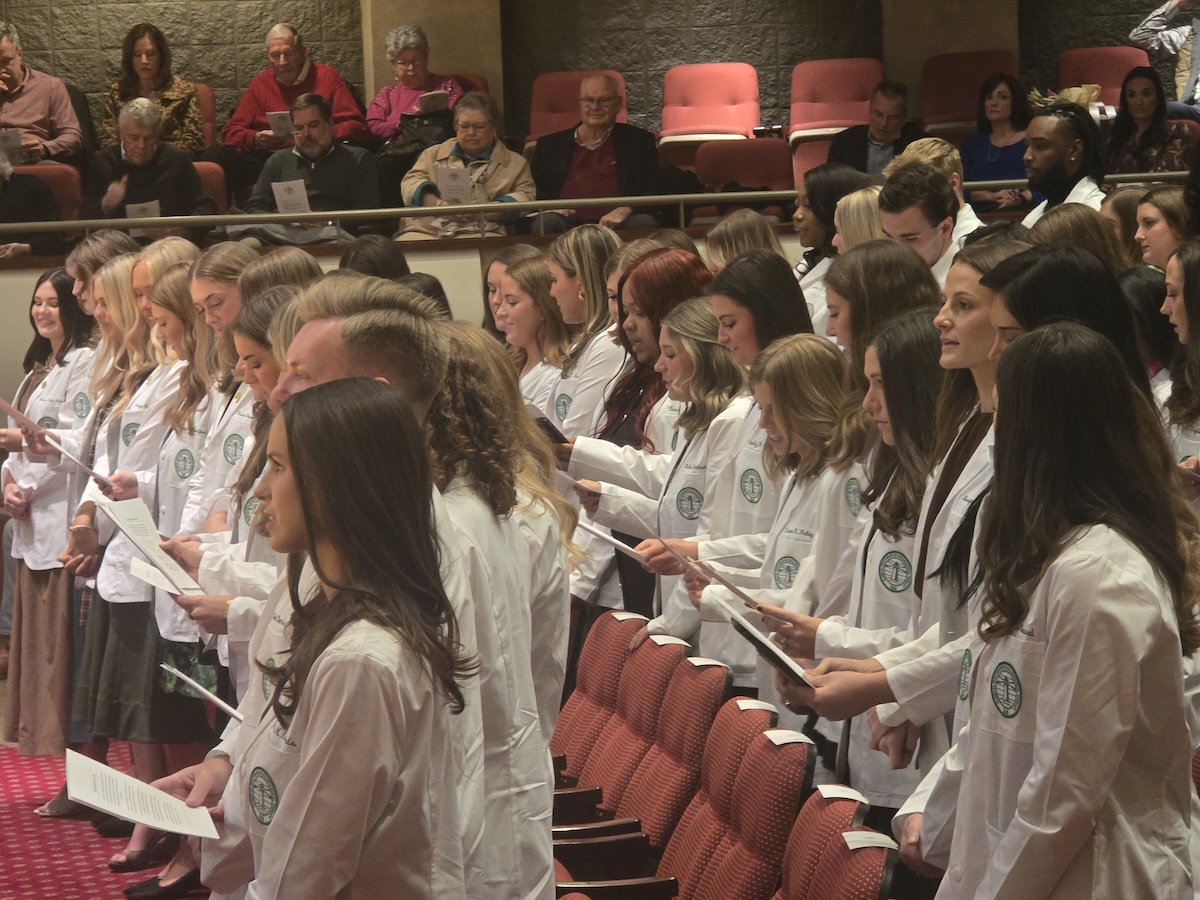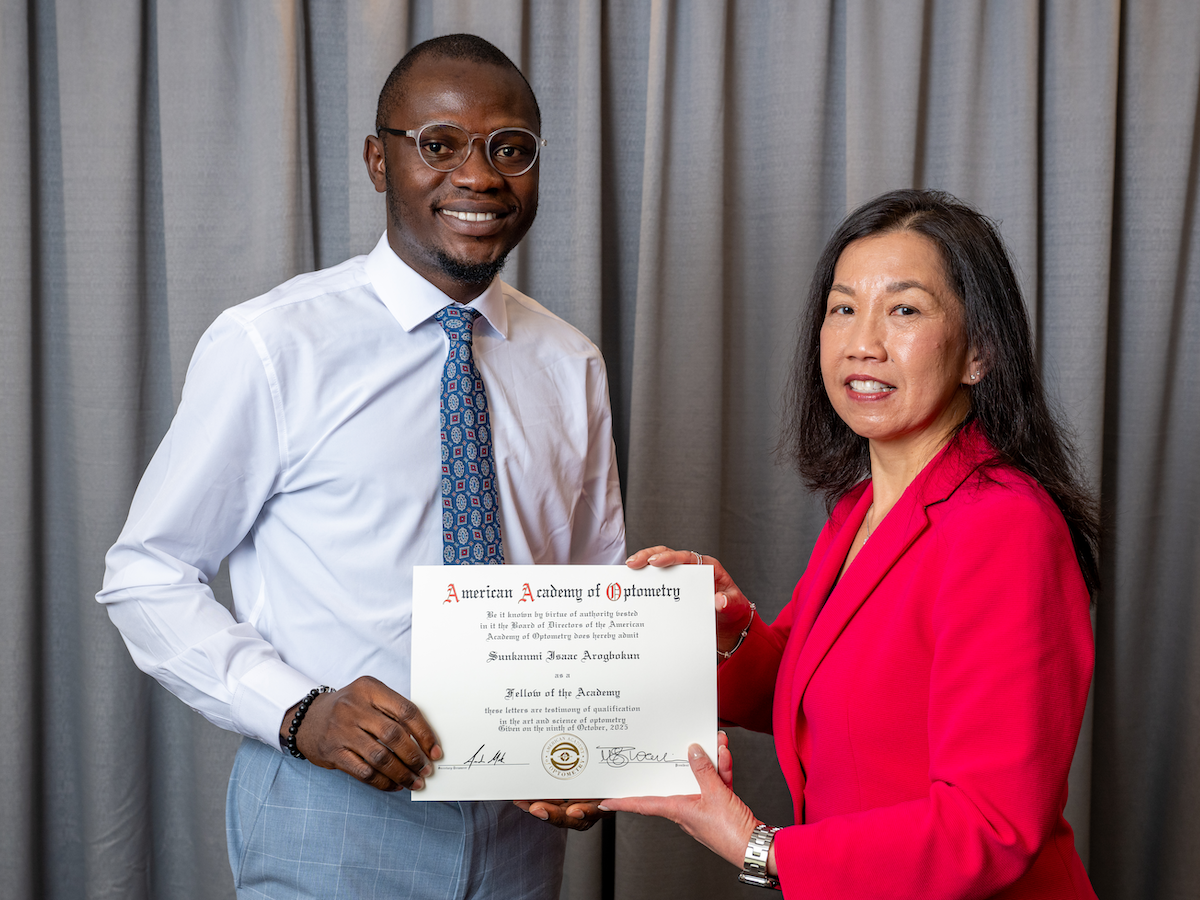 Whitley Kelley
Whitley KelleyUAB Genetic Counseling
Class of 2015Whitley Kelley doesn’t make designer babies. Or spend all day breaking bad news to families.
“Misconceptions abound about the role of a genetic counselor, and genetic testing in general,” says Kelley, a 2015 graduate of the UAB School of Health Professions’ Master of Science in Genetic Counseling program. She is one of three genetic counselors on staff at the HudsonAlpha Institute for Biotechnology in Huntsville, which includes Meagan Cochran, a 2012 graduate of the UAB GC program who was featured in a 2013 UAB Magazine article “Speaking in Code: Preparing Students for a New Era in Genetic Counseling.”
Kelley’s job is to translate some of the most complex technical achievements of the 21st century into language that anyone can understand. She has a bachelor’s degree in molecular biology and was considering becoming a bench scientist before a friend suggested she look into genetic counseling. After some research, she contacted the director of UAB’s master’s program and arranged to shadow some counselors.
“You have to understand both the technical aspects of the science and the emotional challenges of the information you are providing,” Kelley says. “I’m a big nerd at heart, and I was very attracted to the idea of helping translate this cutting-edge science into layman’s terms.”
Kelley is part of an exciting research collaboration between researchers and clinicians in the UAB-HudsonAlpha Center for Genomic Medicine. The project, Genomic Diagnoses for Children with Developmental Delay, is studying the benefits of using advanced genomic sequencing techniques to help clinicians and families diagnose rare and puzzling conditions. The goal is to analyze some 450 families over four years.
One of the challenges of such a project is ensuring families understand the results while addressing underlying misconceptions about genetic testing in general. “There is a strong need for patient education — what to expect, what the tests are, what they can and can’t tell you,” Kelley says.
One of those patients was a young girl with developmental and speech delays, who also has seizures and symptoms of autism. There was no family history of similar symptoms. Gene sequencing revealed a “de novo” (that is, not inherited) pathogenic variant in the gene MECP2 leading to atypical Rett syndrome.
“Her symptoms were not classic hallmarks of Rett syndrome,” Kelley says. “We caught this in a gene that wasn’t on anyone’s radar otherwise.”
Even though she often can’t offer families a definitive answer, Kelley can help them gain a measure of control over a frustrating situation.
“If we can find a Facebook group or message board, especially for these ultra-rare conditions where the family’s chance of meeting someone else with the same condition in their own community is low, it can be huge,“ she says. When they can connect with other families “even if they’re in California, or Sweden, parents can say, ‘my child is having difficulty with X, what have you used?’ or ‘My child has seizures with this trigger, does anyone have the same challenge?’“
Kelley says. ”Some of these conditions are so new that I’ve got nothing like that to offer yet. But when I do, it’s really awesome.”
Another comfort is that a dead end could suddenly turn into a new way forward. When sequencing turns up a variant of unknown significance (VUS) in a gene, the researchers set up automated searches of Google Scholar and PubMed in addition to actively seeking out collaborators studying the gene of interest. If any new research turns up something of interest, they investigate.
“To get to call a family and tell them ‘We now have a diagnosis for you,’ without another blood draw or months of waiting, that’s just been awesome to be a part of,” Kelley says.
In addition to research and patient counseling, Kelley spends much of her time on outreach and education efforts, making presentations to students and the public. She also meets with genetic counseling students from UAB, who come to HudsonAlpha on training rotations.
Genetic counselors serve in a wide variety of roles, Kelley notes, from clinics to research studies to commercial labs. The U.S. Bureau of Labor Statistics projects a growth rate of 29 percent for genetic counselors through 2024, far outpacing the 7 percent growth rate for all occupations. Graduates of UAB’s master’s in genetic counseling program have a 100 percent placement rate.
So what’s one way to prepare?
“It helps to show that you have done volunteer work with people in crisis,” Kelley says.
She had volunteered at a pregnancy resource center and an HIV/AIDS clinic before starting the master’s program. Other common preparations made by students interested in genetic counseling include options such as shadowing a genetic counselor in clinic, working with relevant populations (chronic illness or those with special needs), active counseling experience (i.e., crisis hotlines), or teaching/research experience.
“Nobody likes to talk about sad things, but it does come up in this field,” she says. “A lot of our role is based around facilitating decision making: helping people understand what are their options, and what is best for them and their families. There’s much more going on than the medical problem.”

